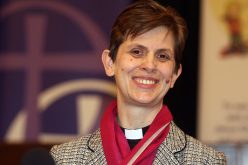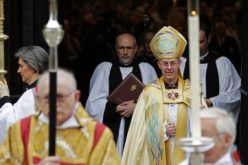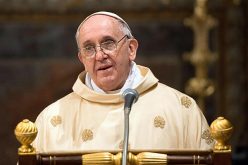 For those optimistic about the Roman Catholic Church taking full responsibility on behalf of Genocidaires within the church, accountability is nowhere in sight.
For those optimistic about the Roman Catholic Church taking full responsibility on behalf of Genocidaires within the church, accountability is nowhere in sight.
While this may be unsettling to some Rwandans, others turn their attention towards the reconciliation process as the country continues to heal, 19 years after the 1994 Genocide against the Tutsi.
In several interviews with Rwandan religious leaders last week, questions regarding the liability of the Catholic Church in response to the Genocide were visited once again.
According to Bishop Smaragde Mbonyintege of the Catholic Diocese of Kabgayi, his church has “strongly condemned the Genocide” and affirmed that those who committed it should be brought to justice.
But there is no way the church is going to openly apologise on behalf of diverters within the church who chose to participate in the Genocide.
“The Catholic Church has good and bad Christians within it and that’s what we saw during the Genocide,” he said.
Bishop Mbonyintege said all Genocidaires from the Church should be brought to justice and did not place much emphasis on being apologetic for crimes committed by individuals in the Catholic Church in 1994.
“The Catholic Church as an institution, whether at the universal level or national level, has neither supported nor conspired to commit genocide, it’s against the character of the Church,” he said.
On the streets of Kigali and elsewhere in the country, some of those who survived the Genocide agree that individual responsibility comes first, while others insist that the Catholic Church should apologise for what its members did.
Phélicien Semiryango, 52, was in Rwanda during the Genocide and is a member of the Adventist Church today. When asked about his beliefs regarding the Catholic Church’s response to the Genocide, Semiryango shared that “people who were not deep in their faith committed many atrocities during the Genocide”.
Without reservation Semiryango stated that there were two types of people during the Genocide.
“Those who were on God’s side and those who were on evil’s side,” he said.
Sentiments of another survivor, 59-year-old Peruth Mukankusi, mirrored Rwandans who prefer to focus on the future through reconciliation after the Genocide.
“People were willing to forget about God and work for Satan. Those who worked for Satan during the Genocide need to work to be forgiven today,” she said.
Mukankusi is a resident of Kacyiru in Kigali’s Gasabo District.
Those who have been teaching reconciliation since the end of the Genocide, such as Pastor Antoine Rutayisire of the Anglican Church, say that people should not expect accountability for Genocide to be a swift move.
“It took some four decades for Rome to recognise the Holocaust of the Jews, it may take as much time for them to do the same with the Genocide against the Tutsi,” Rutayisire says. “Where they should confess and apologise is where the Church as an institution took part in the unjust system or even kept silent when evil was being committed.”
Rutayisire supports all that the Catholic Church contributes in the rebuilding of communities in post-genocide Rwanda.
“In activities that lead to reconciliation, Catholic priests and nuns are contributing immensely in the process,” he said.
Among members of the Catholic Church, some survivors are very vocal about the Catholic Church’s stance in response to its accountability during the Genocide. But, 55-year-old Jean Damascene Rindiro, said that “it should be clear that the whole Church did not participate” in the Genocide.
He gave the example of former Archbishop of Kigali, Vincent Nsengiyumva, who was a member of the executive committee of former president Juvenal Habyarimana’s ruling party, the National Republican Movement for Democracy and Development (MRND).
Rindiro observed that in the build up to the genocide, lines between the secular and religious became blurred as leaders on both fronts aligned to annihilate Tutsis.
“I thought the Catholic Church apologised once before. However, if they haven’t, an apology is long overdue,” Rindiro said.
Anglican former Archbishop Emmanuel Kolini agrees that all faiths should be held accountable for their silence during the Genocide.
“I don’t like to talk too much about denominations. All Christian churches were silent when they should have spoken up,” he said, emphasising that he apologised on behalf of his own Church when he was still the Anglican Archbishop in the country.
“I myself have apologised on behalf of my church and my predecessors who came before me,” he said.
During the colonial period, the Roman Catholic Church and the Belgian colonial administration employed artificial ethnic divisions.
Many survivors may grow weary awaiting an apology from the representative body of the Catholic Church, but it seems the church will take longer to make an apology if at all.
“I recognise that Catholics and people from other faiths were involved in the Genocide, but the churches as institutions have always condemned the Genocide,” Bishop Mbonyintege says.
Meanwhile, many Rwandan religious leaders seem to constantly urge their communities to focus on reconciliation rather than blame their churches for conspiring in the Genocide.
THE NEW TIMES










